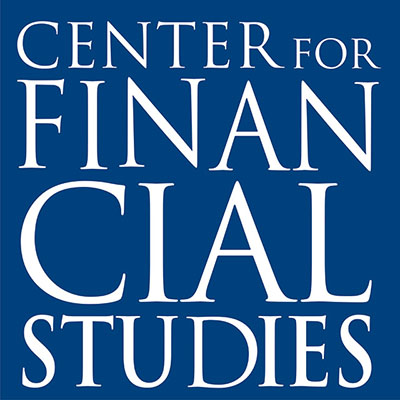CFS Index
30.11.2023
CFS survey on “Adherence to the debt brake”
German financial sector considers debt brake necessary –
and favours option of easing during crisis periods
Background:
In order to combat the economic impacts of the pandemic, to modernise the German armed forces and to deal with the consequences of the energy crisis triggered by the conflict in Ukraine, Germany’s federal government has made substantial sums available as “special funds”. The Economic Stabilisation Fund – Coronavirus (WSF-Corona; €150 billion), the Economic Stabilisation Fund – Energy Crisis (WSF-Energiekrise; €200 billion) and the Bundeswehr Special Fund (Sondervermögen Bundeswehr; €100 billion) account for a combined volume of €450 billion alone.
This spending is not included in the calculation of the debt brake, to which the federal government is obliged to adhere. This was a recent point of criticism from the Federal Audit Office. The debt brake permits structural net borrowing up to a maximum of 0.35 percent of Germany’s GDP annually. Given the continued high level of funding required to finance the green transformation and the digital transformation, opinions are divided on whether the debt brake should be strictly adhered to, relaxed or suspended. It should be noted that the survey was initiated even before the Federal Constitutional Court declared the 2021 supplementary budget unconstitutional. The consequences of this ruling are still the subject of much debate, but at the very least they will cause a funding gap of €60 billion in the Climate and Transformation Fund (KTF).
Survey results:
Around 43.4% of the survey respondents believe that strict adherence to the debt brake is necessary. By contrast, around 45.4% of panellists take the view that the debt brake should be eased in times of crisis. 6.8% of respondents are even in favour of suspending the debt brake during crisis periods. Only around 1% advocate abolishing the debt brake completely. “The financial sector sees the debt brake as necessary. However, there are many arguments for applying it flexibly in times of crisis. It may be necessary to consider amending the constitution in this respect,” explains Professor Volker Brühl from the Center for Financial Studies.
The Federal Audit Office recently criticised the growing tendency for public debt to be shifted to special funds. It argues that this reduces parliament’s ability to exercise control. On the other hand, special funds allow the federal government to respond more quickly to crisis situations. 58.5% of the survey participants support the authorisation of special funds. Conversely, 41.5% of respondents are fundamentally opposed to special funds.
In addition, a clear majority of almost 76% believe that relaxing the debt brake would lead to higher inflation risks.
“The votes, which were roughly equal in size, show the tensions in the current financial policy debate. The debt brake is seen as an anchor of stability with serious, undesirable side effects. A political solution seems to have been found. Beyond this, the financial centre can also provide support in finding a solution. It is time to intensify the dialogue between Frankfurt and Berlin,” says Hubertus Väth, Managing Director of Frankfurt Main Finance.
The results are based on a quarterly management survey in the German financial sector.
_______________________
We would like to thank Frankfurt Main Finance e.V. for financially supporting the project.


